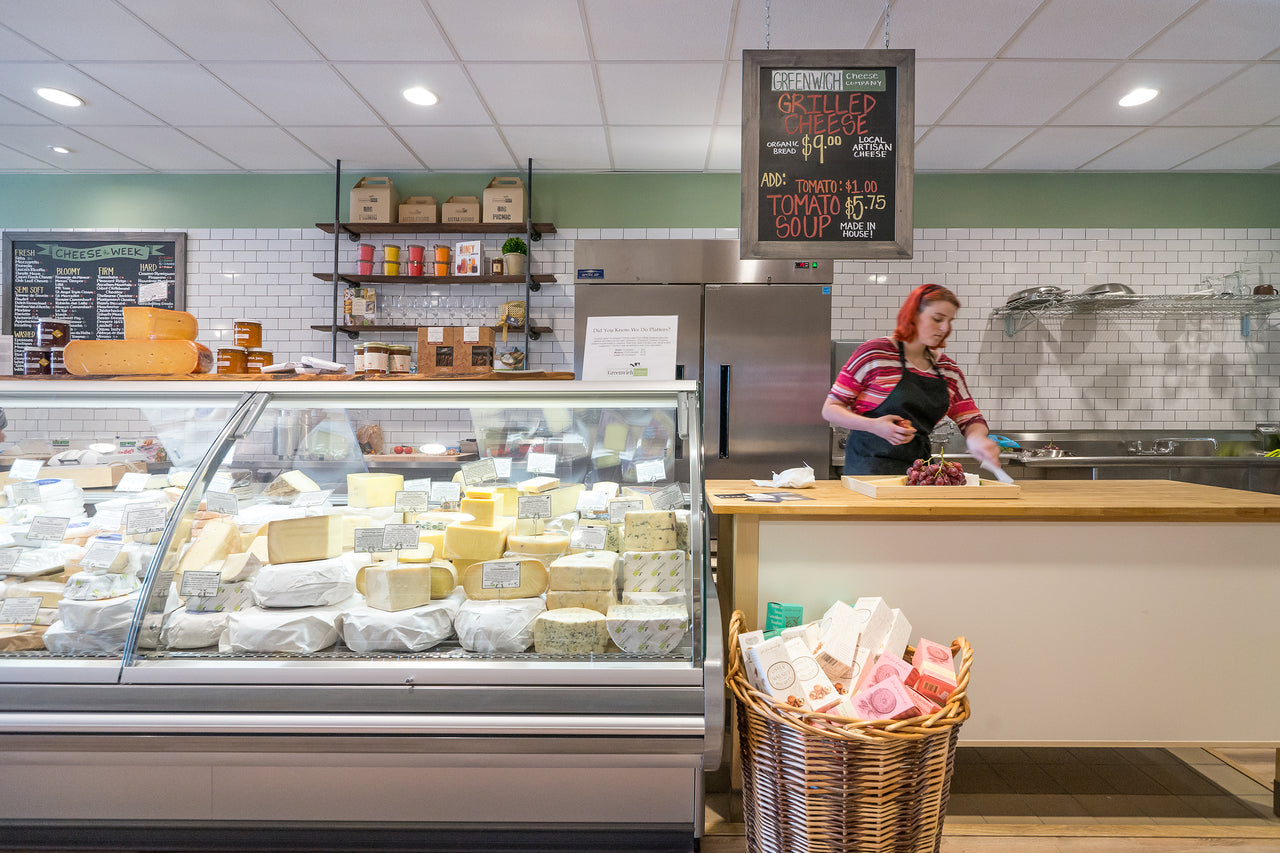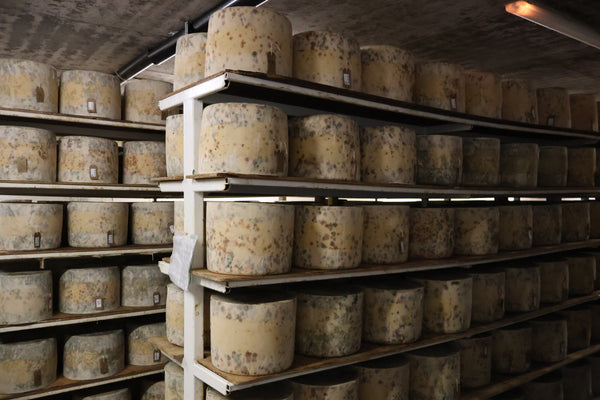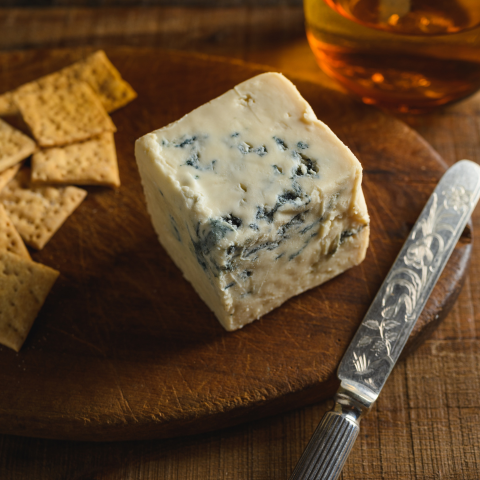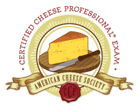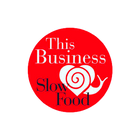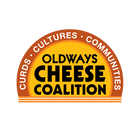I know that stepping into a cheese shop and up to the counter is an intimidating proposition for some people. There it is, a cheese case full of cheeses with names you don't recognize and people behind the counter who seem to possess cheese genius. No wonder most Americans opt for the grocery store where you can grab a wedge and head for the checkout, no questions asked. I've heard people say it's similar to speaking to a sommelier. It's intimidating. Well, I am here to tell you not to be afraid. Cheesemongers are friendly. They want to help you pick the perfect cheese for you and don't care if you don't know anything. We want to talk cheese and share it with anyone who will try it. Here are a few tips for getting the most out of your cheese buying experience.
1. Approach with an open mind. While sticking to what you already know is comforting, the rewards will be great if you approach with an open mind. If you love triple creme, mention it. Cheddar? Tell us. However, then let a cheesemonger suggest something like it. The more you try, the more you learn, making you less intimidated.
2. Ask, "So what's good today?" Cheesemongers are guides to the cheese case. We taste the cheese constantly, knowing what is at its peak and tasting great.
3. Always taste the sample offered. While you may have had that cheese a hundred times, artisan cheese is handmade, and the seasons affect the milk, which affects the cheese. No two wheels are alike. Think of it like this. While wine has a vintage each year, cheese has a vintage each day because it's made each day. We are intimately familiar with each wheel we receive. It is part of our job. The cheesemonger wants to make sure you like it if it's milder, more robust, or riper than before.
4. Ask questions. There are no dumb questions.
5. Don't freak out over the price per pound. Artisan cheese is pricier than factory-made cheese. It has to be. It's made by hand, not machines, and often on a small farm. Raising a herd of dairy animals and making safe cheese is costly. In the United States, small family farms do not receive any government subsidies. That money is reserved for large corporate food makers. In Europe, it is the opposite. Our culture is used to cheap food, but there is no such thing. Cheap industrial food has environmental, health, and other costs that we pay for down the road. Besides, most people do not buy a full pound. The average piece of cheese leaving a cheese shop is $15-$20. It can serve 4-8 people. You support small farms, families, and businesses when you buy real food.
6. Ask for pairing advice. Cheesemongers tend to be obsessed with food and cooking. It is kind of what we talk about among ourselves all day. We have tried a lot of combinations, condiments, crackers, wine, and beer, and we cook with cheese a lot. We will always have an opinion or idea. We love to share.
7. Country of origin is no longer relevant. It used to be that the French and Italians had a lock on great cheese in the United States. This is no longer true! Imported does not necessarily mean better. America produces some of the most delicious and authentic small-batch cheese available. In fact, American-made artisan cheese has racked up many awards worldwide. A lot of the European stuff we get in the US is mass-produced and not an artisan production. Set aside your preconceived notions and trust us. It doesn't have to be French to be good.
